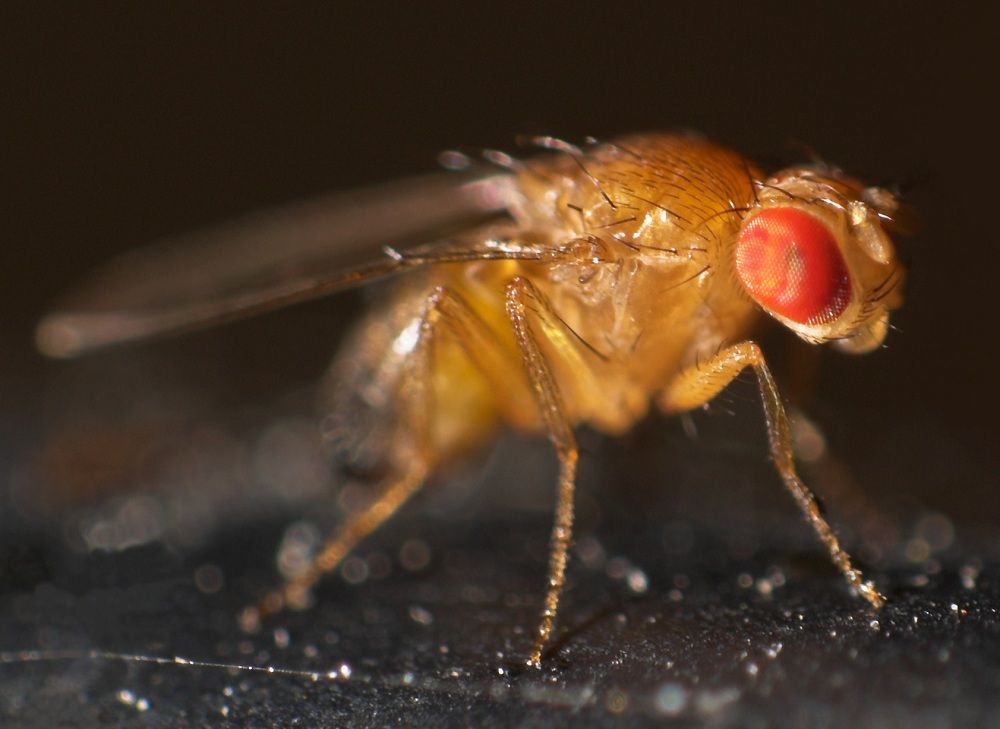Sexy Serenades Turn on a Gal's Immune System

The rhythmic buzzing of a male fruit fly's courtship song really gets a female turned on. Genetically speaking, that is.
New research has discovered that a male's song turns on genes related to the fly's sense of smell and immune system. Researchers aren't sure what the scent genes are for, but it's possible the immune system genes help ward off potential infections after mating.
"We know quite a lot about the genetics of the production of song, but we don't know much about the genetics of female responses," study researcher Elina Immonen, of the University of St. Andrews in the U.K., told LiveScience. "We wanted to see how the females respond to courtship sounds."
Head all abuzz
The courtship song is created by the male's wing vibrations and is an important part of the mating ritual. To test the song's effects, researchers played females a song created to mimic male calls, but without any males around. They then watched which genes were actively being used to make proteins in the fly heads by comparing them with the heads of flies that hadn't heard the courtship songs.
The researchers saw responses in two main types of genes. Puzzlingly, the researchers saw genes related to the female fly's sense of smell turn on. Since they played the song without males around, there shouldn't have been a change in the smell environment.
These turned-on smelling genes could be involved in the mating process in several ways, possibly to help the female find the male that is singing, or to finding a good place to lay eggs after mating, the researchers said.
Sign up for the Live Science daily newsletter now
Get the world’s most fascinating discoveries delivered straight to your inbox.
The researchers also suggest that these genes could be related to the fly's sense of hearing, which is also located on their "smell-detecting" antennae.
Pre-mating immune prep
The researchers also saw multiple genes related to the fly's immune system light up, which was slightly unexpected, but made sense when considering previous studies.
"We know from previous research that during mating, or after mating, females do show increased levels of expression of various immunity genes," Immonen said. "We thought it could be due to this anticipation of the mating that they start to increase this expression."
There are several ways that an activated immune system can help a just-mated female. Sex can transmit infections in fruit flies, just like humans can catch sexually transmitted infections. The act of sex can also injure the female, which can leave her open for infection. Another possibility is that the male transfers proteins that may help in ultimate goal of fertilization, but those proteins might hurt the female.
The researchers can't know how exactly how these genes help the females, but future studies will look at each of these possibilities.
The study was published Tuesday (Oct. 4) in the journal Proceedings of the Royal Society B: Biological Sciences.
You can follow LiveScience staff writer Jennifer Welsh on Twitter @microbelover. Follow LiveScience for the latest in science news and discoveries on Twitter @livescience and on Facebook.
Jennifer Welsh is a Connecticut-based science writer and editor and a regular contributor to Live Science. She also has several years of bench work in cancer research and anti-viral drug discovery under her belt. She has previously written for Science News, VerywellHealth, The Scientist, Discover Magazine, WIRED Science, and Business Insider.













